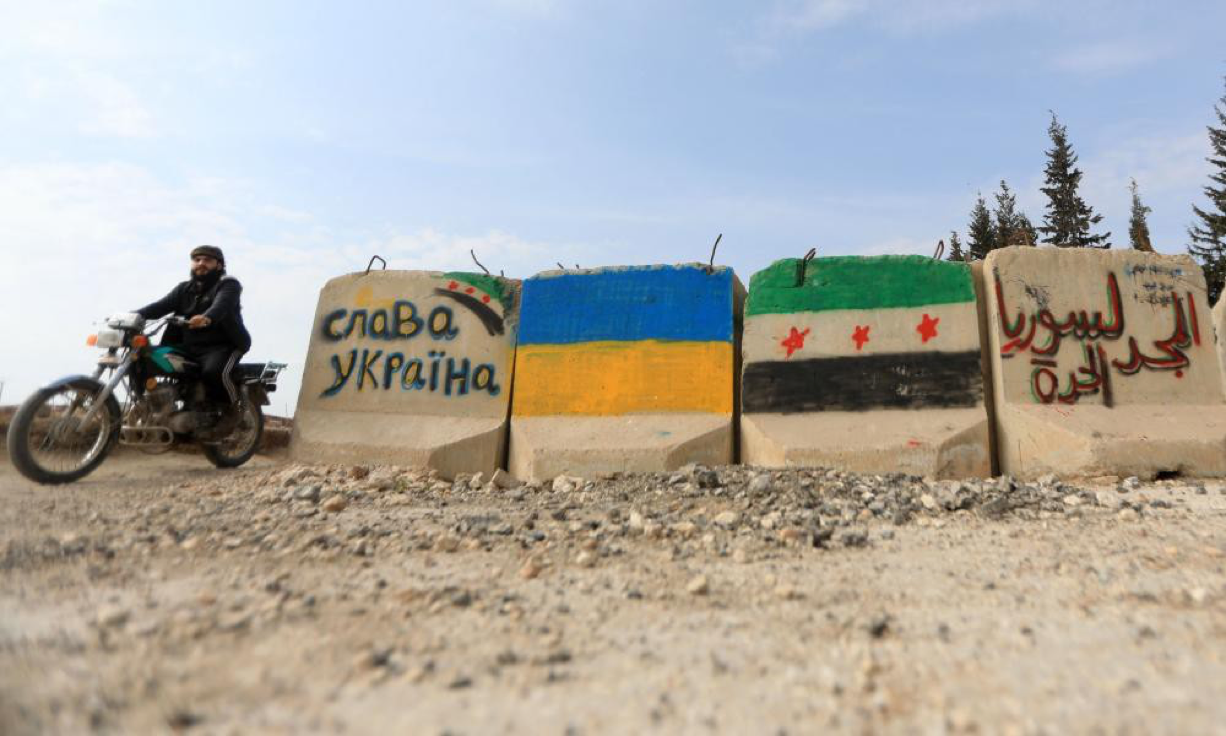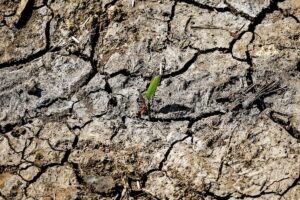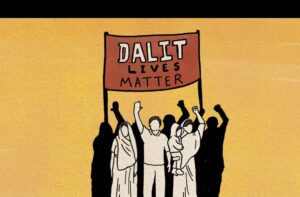Bombed and menaced by an unchecked Putin since 2015, Syrians hope the tide might be finally turning
When a Russian air raid in north-western Syria killed 34 Turkish troops, Ankara’s revenge quickly followed. But, instead of targeting the forces of Vladimir Putin, whose jets had caused the carnage, Turkey sent armed drones towards the Syrian army, pulverising hundreds of pieces of weaponry and killing scores of troops – all as Russia watched on blithely.
In the years since Putin intervened in Syria in 2015 to save the regime of Bashar al-Assad there had been countless examples of Russian attacks on civilian sites – schools, bakeries and hospitals – all of which had met meek responses from global leaders and drawn scant attention from war crimes prosecutors.
But the spectre of a Nato member being unwilling to confront the Russian president for the deadliest assault on its forces in decades spoke volumes about the power Putin had brazenly consolidated amid Syria’s ruins – a lethal intervention that emboldened the veteran leader in the years before the 2022 invasion of Ukraine.
For Putin, Syria became a convergence of a litany of Russian interests, a place where he could test new weapons, take a foothold in the eastern Mediterranean, sponsor proxies, fine-tune disinformation ploys and – more importantly – try his hand at global diplomacy in an arena where the west had lost its way.
Before long, he had convinced many that he alone could reassemble a broken country, and that Russia’s intervention, in a conflict that foiled everyone, was legitimate and maybe even necessary.
That Putin’s air force and artillery regularly bombed civilian targets, killing thousands and laying waste towns and villages, became so passé that it was regularly overlooked.
Impunity became a dominant theme in Idlib province, which remained out of regime control and where Russia assumed it had a free hand to bomb and maim at will. Occasional calls for no-fly zones had no real impetus and the profound suffering of more than three million people became a footnote to a decade of conflict.
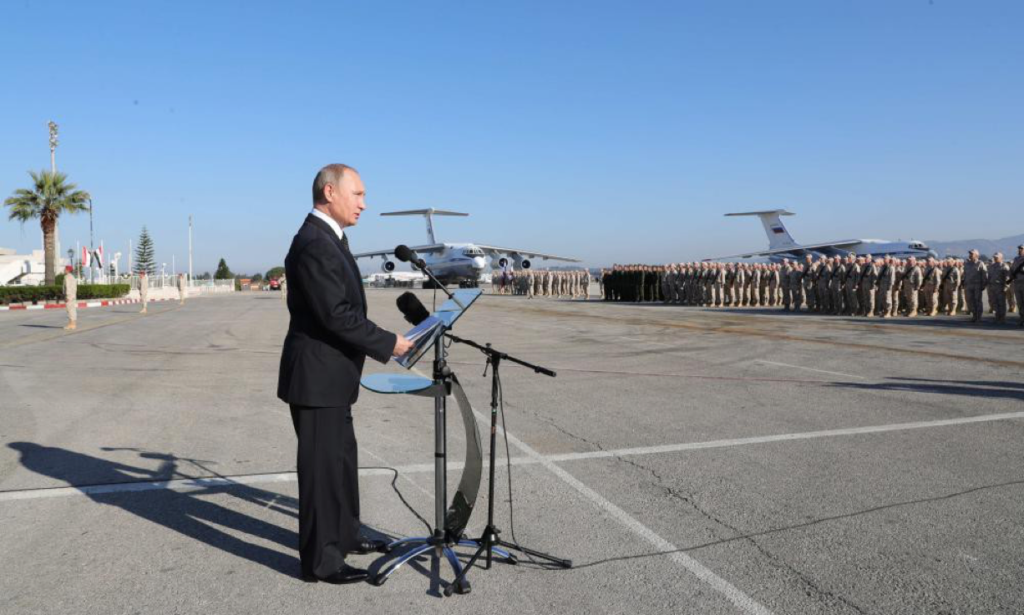
All the while, Putin propped up Assad, doing what he could to rehabilitate him on a global scene and building a narrative that he alone was the global leader capable of picking up the pieces.
While chinks are starting to appear in Assad’s armour of impunity, Russia has never been held to account for the role it played in Syria. To the contrary, Putin has drawn confidence from every one of the past seven years, cementing himself as a regional player and a shrewd global operator, and turned the first major Russian military foray since the collapse of the former Soviet Union into a relative success, all the while scoffing at what he sees as a navel-gazing and splintered west.
Syrian civilians, especially in the north-west, have rallied behind Ukraine, sending messages of solidarity and allying their cause to that of a people invaded by a powerful neighbour that seems to know no bounds.
In Idlib, residents say a playbook created in Syria of rampant disinformation, indiscriminate bombing, cyberwarfare and devastating heavy weaponry is certain to be used again.
But to their surprise, the war of narrative, which had tipped decisively in Russia’s favour in Syria, is being lost in Ukraine, where a previously disengaged world has taken a keen interest.
The numbers of global states lining up to sanction Russia has astounded many Syrians who, while they can’t fathom why they were left behind, are cheering on Ukraine from their faraway tents and shantytowns still under Russian siege.
In Idlib and elsewhere in Syria, hopes are rising that the tide may be finally turning against Russia. If even Germany is supplying weapons to Ukraine, and Turkey has mustered the courage to prevent Russian warships passing through the Dardanelles to the Black Sea, hope is stirring that the Syrian conflict could be viewed with more empathy.
“Their suffering is ours,” said Elham Shaheen, a Syrian living in exile in Turkey. “We know better than anyone else in the world what Ukraine is going through. If they win, we do too. All of my family is watching on. Much of Syria is too.”
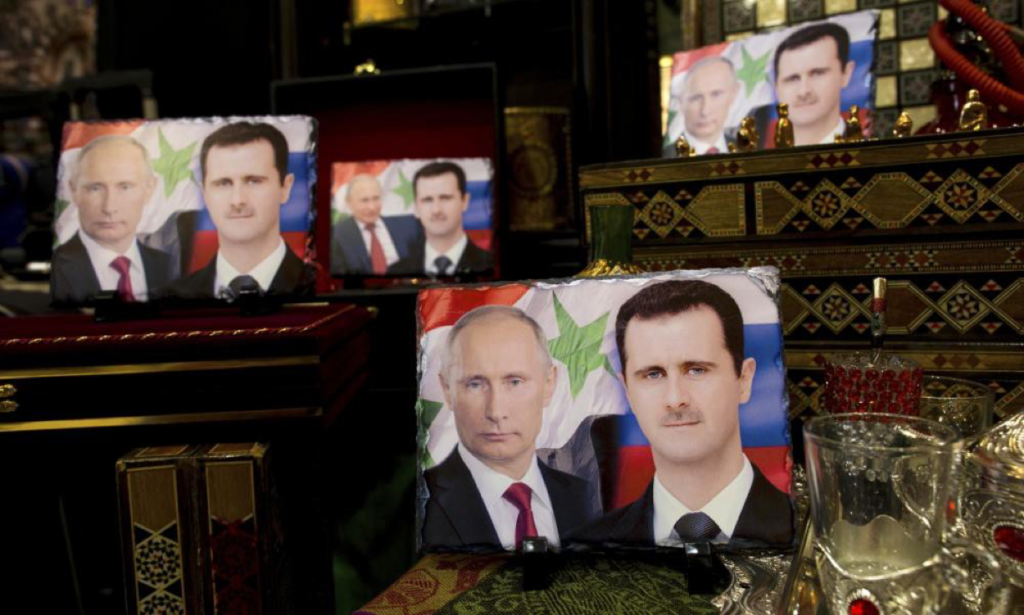
Other Syrians spoke of the ease with which Russian propaganda is being shredded in Ukraine, and of hope their own agony would be viewed through a fresh prism.
“We lived under Russian bombs and lies for six years,” said Marwan Issa, a villager from Homs, now in Idlib. “Our fates are now united.”
The truth, they say, is the first casualty of war, more so at a time when misinformation spreads so rapidly. But with correspondents on the ground on both sides of the Ukraine-Russia border, in Kyiv, Moscow, Brussels and other European capitals, the Guardian is well placed to provide the honest, factual reporting that readers will need to understand this perilous moment for Europe, the former Soviet Union and the entire world.
The Guardian has an illustrious history of persistent, independent reporting in the region. We know there is no substitute for being there, and were on the ground at all the critical moments – from the 1917 revolution and the Ukrainian famine of the 1930s, to the collapse of 1991 and the first Russo-Ukrainian conflict in 2014. And we will stay on the ground through this frightening period as well.
Tens of millions have placed their trust in the Guardian’s fearless journalism since we started publishing 200 years ago, turning to us in moments of crisis, uncertainty, solidarity and hope. We’d like to invite you to join more than 1.5 million supporters, from 180 countries, who now power us financially – keeping us open to all, and fiercely independent.
Unlike many others, the Guardian has no shareholders and no billionaire owner. Just the determination and passion to deliver high-impact global reporting, always free from commercial or political influence. Reporting like this is vital for democracy, for fairness and to demand better from the powerful.
And we provide all this for free, for everyone to read. We do this because we believe in information equality. Greater numbers of people can keep track of the global events shaping our world, understand their impact on people and communities, and become inspired to take meaningful action. Millions can benefit from open access to quality, truthful news, regardless of their ability to pay for it.

